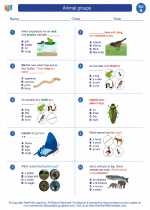Engineering
Engineering is the application of scientific and mathematical principles to design and build machines, structures, systems, and processes to solve real-world problems. It is a diverse field that encompasses various branches such as civil, mechanical, electrical, chemical, and computer engineering, among others.
Branches of Engineering
- Civil Engineering: Involves the design and construction of infrastructure such as bridges, roads, and buildings.
- Mechanical Engineering: Focuses on the design and development of mechanical systems and devices.
- Electrical Engineering: Deals with the study and application of electricity, electronics, and electromagnetism.
- Chemical Engineering: Concerned with the design and operation of industrial processes for the production of chemicals and related products.
- Computer Engineering: Involves the development of computer hardware and software systems.
Study Guide
If you are interested in learning more about engineering, here are some key topics to focus on:
- Mathematics: Develop a strong foundation in calculus, algebra, and trigonometry as these are essential for solving engineering problems.
- Physics: Gain a solid understanding of mechanics, thermodynamics, and electricity, as these principles form the basis of many engineering applications.
- Design and Innovation: Explore the process of designing and innovating new solutions to engineering challenges, including prototyping and testing.
- Materials Science: Learn about the properties and behavior of various materials used in engineering, such as metals, polymers, and composites.
- Computer-Aided Design (CAD): Familiarize yourself with CAD software tools for creating and analyzing designs in a virtual environment.
- Professional Ethics: Understand the ethical considerations and responsibilities of engineers in ensuring the safety and well-being of society.
By studying these topics and exploring hands-on projects, you can gain a deeper understanding of the exciting world of engineering and its potential to make a positive impact on the world.
[Engineering] Related Worksheets and Study Guides:
.◂Science Worksheets and Study Guides First Grade. Animal groups
Study Guide Animal groups
Animal groups  Worksheet/Answer key
Worksheet/Answer key Animal groups
Animal groups  Worksheet/Answer key
Worksheet/Answer key Animal groups
Animal groups  Worksheet/Answer key
Worksheet/Answer key Animal groups
Animal groups  Vocabulary/Answer key
Vocabulary/Answer key Animal groups
Animal groups 

 Worksheet/Answer key
Worksheet/Answer key
 Worksheet/Answer key
Worksheet/Answer key
 Worksheet/Answer key
Worksheet/Answer key
 Vocabulary/Answer key
Vocabulary/Answer key

The resources above cover the following skills:
LIFE SCIENCE
From Molecules to Organisms: Structures and Processes
Design a solution to a human problem by using materials to imitate how plants and/or animals use their external parts to help them survive, grow, and meet their needs (e.g., outerwear imitating animal furs for insulation, gear mimicking tree bark or shells for protection).